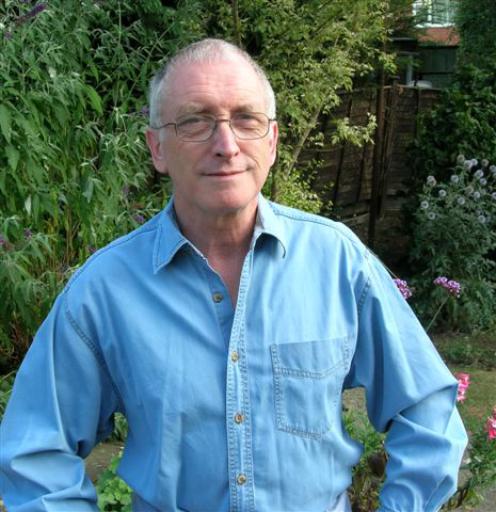Written on February 20th, 2010 by adminno shouts
Angie Belcher on the joys and japes of producing a stand-up poetry gig.

Running a stand -up poetry night always seems so easy on paper. Select poets, invite punters. Mix. Yet I always shudder a little when asked to run a Stand-up poetry night because of my unflinching obsession with creating the best possible variables to encourage the most investment, inclusion and permission. This while sounding like a banking equation is basically the creation of ways to allow your audience to shut up and laugh, each in the right place. I imagine that most people think that this is a given, yet I spend a shockingly large amount of time worrying that this wont happen. When I run Music events this is never quite as important as I don’t need an audience to pay perfect attention to the band, yet with comedy and poetry it’s integral. Investment is a person’s belief that they have given up something so that they believe they will miss out if they don’t pay attention to the performer. This is often pseudo-controlled by over zealous compers but one of the simplest ways of doing this is to charge a nominal fee on the door, this creates a feeling that they have invested in the show and therefore they will want to pay attention. The same effect however can be achieved by having a burly bloke on the door who looks like he eats Jack Russels for breakfast.
I have often found my self in free gigs where the audience roams in and out not quite registering that the lady in the corner is doing her bestest poetry, whereby I compete for attention with the fruit machine. I wonder what the pubs intention was in having invited stand –ups in the first place. It’s difficult to feel confident on stage while the land lord of the pub makes it quite clear that you’re not quite as important as the football score he loudly announces to his punters while you’re on stage. Therefore at my gigs it’s essential that I make my acts feel welcome, often to the point of psychosis. When I started running nights I was just so grateful that my acts had turned up and that I didn’t have to fill 2 hours with me that I would practically force my tongue down their throat on arrival.
Secondly, I have a Tetris like obsession for creating the perfect physical space so that absolutely no-one can sit at the bar, or sneak off and have (god forbid) a private chat. This means that everyone gets crammed into the front in a vice- like system which means that everyone feels like they are in the front row, thus confusing all the people that promise themselves never to sit in the front row at a comedy night.
I must say though that recently I have been broadening my stand-up poetry environment. Last year I performed in a run down area of Bristol in the middle of a traffic roundabout on a Sunday morning at 9 am in the pouring rain while the only audience was a collection of local heroin addicts who were most amused that a bunch of poets had come to entertain them. Strangely enough though I found the whole thing quite liberating. I couldn’t control the variables, my mascara had run down my face and the threat of violence loomed large in my shaky stanzas. It was a hoot however and funnily enough got asked to do a really good gig in the warmth and in a proper building and that off the back of it. The moral there is never turn down a gig, unless you think you can compete with stoke beating man city 2-0.
Angie Belcher
To book Angie go to http://www.dragon-pm.com/
To learn more about Angie’s day job go to www.angiebelcher.com
Written on February 10th, 2010 by adminone shout

I don’t remember when I began writing poetry, but when I’m asked why I write it, I generally say that it’s an itch I feel periodically obliged to scratch. Certainly I started in what must be a fairly standard manner, inflicting my efforts firstly on my family, then in the magazine of Friends School, Lisburn, in Ireland. From about the age of 12 I appeared periodically on BBC Radio Children’s Hour, broadcast from Belfast. There was no payment, but for each performance you received a book token for seven shillings and sixpence.
At 15 years old, I joined the Royal Air Force and served in it until I reversed the numbers and left at the age of 51. During the majority of my service career, my poetry output was limited to ‘crew-room verse’, very parochial and purely for the amusement of my colleagues, who liked their verse (a) to rhyme (b) to be about them (c) to be funny and, for preference, rude.
However, in the early ‘90s, I discovered the small poetry press and began to subscribe and submit to a variety of periodicals such as Iota, Smiths Knoll, Orbis, Envoi, etc. At first, I imagine like many others, I fired off poems, machine-gun fashion, in all directions, gradually discovering which magazines seemed most inclined to accept my work and which wouldn’t. I also began to send work off to written competitions and found that I could gain some success in that field as well.
The notion of performing in public never occurred to me at that time. You can’t blithely tell a promoter that you’ll appear at such and such a venue on such and such a date in the future, only to find that Her Majesty would prefer you to be in some remote part of the world instead.
However, four days after leaving the R.A.F., in April 1996, I hopped onto the stage at the Gloucster Guildhall, took part in my first Performance Poetry Slam and discovered a competitive and exhibitionist streak I didn’t know I possessed. There is something particularly appealing to me about Slams. A lot of it lies in the total unpredictably of what’s going to happen, what you’re going to hear and who you’re going to meet. I never tire of them, although though they rarely earn you any money on the night. But right from the beginning I found that a good performance might (and did) earn me support slots with established figures such as Brian Patten, John Hegley and Attila the Stockbroker, or invitations to appear as a featured artist at a poetry evening, or even, in one memorable instance, to be presented with an expensive sex toy donated by the Ann Summers company (which I contrived to sell to an appreciative audience member before I left the stage!).
More conventionally, within a couple of years, I began to acquire a smattering of invitations to appear, not only at literary festivals, but at an eye-watering variety of disparate events, ranging from the W.I. to jails, from an Air Guitar Championship to a classical music festival. I’ve performed poetry from the back of a flat-bed truck in a Welsh field, a ferry boat bobbing around Bristol harbour, a knitting convention,a couple of comedy clubs, several schools and goodness knows how many pubs and clubs between Devon and Yorkshire.
Particularly pleasing has been a stint as the Poet Laureate for the Gloucestershire1000 project, a brace of nominations for the National Poetry Prize and reaching the final of Radio Four’s first ever broadcast Slam. I’ve produced eight slim volumes of my work, the latest of which, ‘Not All Men are from Mars’ I sell in support of the charity Women’s Aid. Poems of mine have found their way onto the BBCs Poetry Please and Something Understood, into national papers like the Daily Express and the Daily Telegraph.
A decade and a half since I first climbed onto a stage, I’ve enjoyed and am continuing to enjoy, innumerable evenings in good company all over the place. I’ve indulged in poetic collaborations with a number of talented individuals including Emily Wills, Jo Bell, Paul Eccentric and Alison Brumfitt. I’ve met a fair proportion of the great and good on the contemporary poetry scene and have every intention of carrying on for as long as I can put pen to paper, or stagger up to a microphone.
Lately I’ve started to pay more attention to poetry on-line. I’ve contrived to inveigle myself into some very good company appearing on webzines such as Chimaera, The Flea and the wonderfully named Shit Creek Review, thereby putting my work before audiences in America, Australia and beyond.
If you’re interested in knowing more about what I do and where I do it, try www.myspace.com/peterwytonpoet

